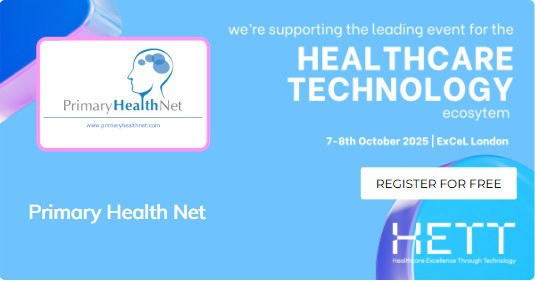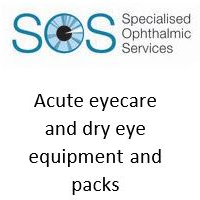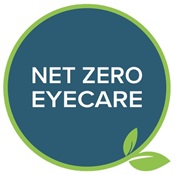Exhibitions & Meetings
Titivate your tastebuds for attending the HETT show

Tuesday, 7th October 2025 from 09:00 to 17:00 and on Wednesday, 8th October 2025 from 09:00 to 16:30
Interested in technology that will drive your practice to lead in the forthcoming 10-Year Plan?
Read this discussion paper and consider attending a key conference at London ExCel
Useful Reading for all playing a future part in Primary Care Provision.
From Waiting Rooms to Living Rooms: How Technology is Transforming Primary Health Care
The Patient’s Perspective
It’s a rainy Tuesday morning in a small English town. Instead of sitting in a crowded GP waiting room, 72-year-old Margaret taps her NHS App. Within minutes, she’s speaking to her GP via secure video call, her blood pressure readings already uploaded from a home monitoring device. The doctor has her complete medical history on one screen — prescriptions, test results, and even notes from her community nurse — thanks to a unified patient record.
The Shift in Care Delivery
This is not a distant vision. It’s the reality emerging from the NHS’s 10 Year Health Plan, which calls for three major shifts:
- From hospital to community – bringing care closer to where people live.
- From treatment to prevention – using data to spot risks before they become crises.
- From analogue to digital – replacing paper and fragmented systems with connected, intelligent tools.
Technology in Action
At the heart of this transformation are innovations being showcased at the HETT Show:
- AI-powered triage that helps primary care teams prioritise urgent cases.
- Integrated care platforms that allow GPs, pharmacists, and social care teams to share real-time updates.
- Remote monitoring for chronic conditions, reducing unnecessary hospital visits.
- Digital literacy initiatives ensuring patients of all ages can confidently use these tools.
The Human Impact
For clinicians, this means less time chasing records and more time with patients. For patients, it means faster access, personalised care, and the reassurance that their health data is secure and accessible to those who need it. For the NHS, it’s a step toward sustainability — easing pressure on hospitals and improving outcomes.
A Glimpse into the Future
As Sonia Patel, Chief Technology Officer at NHS England, will explore in her fireside chat at HETT, the shift from analogue to digital is not just about technology — it’s about trust, culture, and collaboration. The next decade will see primary care evolve into a proactive, data-driven service that meets people where they are — whether that’s in a clinic, at home, or on their phone.
Closing Note
Margaret ends her call with a smile. Her prescription is already on its way to the local pharmacy, and her GP has scheduled a follow-up — all without her stepping outside. This is the promise of technology in primary health care: care that is connected, compassionate, and convenient.
Healthcare is full of inspiring, real-world tech applications that are already making a difference for patients and clinicians.
Here are some standout examples across different areas:
🧠 Artificial Intelligence in Diagnosis
- DeepMind & Google Health – Breast Cancer Detection
AI trained on mammogram datasets from the UK and US was able to detect breast cancer more accurately than the average radiologist, reducing both false positives and false negatives. - Corti – Emergency Call Support
This Danish AI tool listens in on emergency calls, prompting dispatchers with key questions and detecting signs of cardiac arrest faster than human operators.
📱 Remote Monitoring & Wearables
- Dexcom Continuous Glucose Monitor (CGM)
A small wearable sensor that continuously tracks blood sugar levels for people with diabetes, sending real-time data to their phone and healthcare team. - Apple Watch ECG & Fall Detection
Detects irregular heart rhythms and can automatically alert emergency services if a hard fall is detected.
🖥 Telemedicine & Virtual Care
- NHS App & Video Consultations
Patients can book appointments, order repeat prescriptions, and have secure video consultations without visiting the GP in person. - Babylon Health
Offers AI symptom checking and virtual GP appointments, helping to triage patients and reduce unnecessary clinic visits.
🏥 Hospital & Imaging Innovations
- AI-Enhanced CT & MRI Scans
Philips’ AI tools improve patient positioning and image reconstruction, reducing scan times and radiation exposure while improving image quality. - Robotic Surgery (e.g., da Vinci Surgical System)
Allows surgeons to perform minimally invasive procedures with enhanced precision and control.
📊 Data Integration & Predictive Analytics
- Integrated Electronic Health Records (EHRs)
Systems like Epic and Cerner unify patient data across hospitals, GPs, and community care, enabling faster, safer decision-making. - Predictive Analytics for Readmission Risk
AI models flag patients at high risk of hospital readmission so care teams can intervene early.
AI in Diagnosis
- DeepMind & Google Health – AI detects breast cancer from mammograms with higher accuracy than average radiologists.
- Corti – Listens to emergency calls and flags cardiac arrest faster than human operators.
📱 Remote Monitoring & Wearables
- Dexcom CGM – Continuous glucose monitoring for diabetes, with real-time data sharing.
- Apple Watch – ECG readings and fall detection with automatic emergency alerts.
🖥 Telemedicine & Virtual Care
- NHS App – Book appointments, order prescriptions, and have secure video consultations.
- Babylon Health – AI symptom checker plus virtual GP access.
🏥 Hospital & Imaging Innovations
- AI-Enhanced CT/MRI – Faster scans, lower radiation, better image quality.
- da Vinci Surgical System – Robotic-assisted minimally invasive surgery.
📊 Data Integration & Predictive Analytics
- Epic & Cerner EHRs – Unified patient records across care settings.
- Readmission Risk Models – Predictive analytics to flag high-risk patients for early intervention.
If any of the above interested, intrigued or struck a chord you should register for free for the 2-day event

– Share ideas, reflect and collaborate on today’s biggest challenges
Why attend HETT Show 2025?
HETT (Healthcare Excellence Through Technology) is the UK’s leading digital health and health tech event – bringing together NHS leaders, policymakers, innovators and frontline professionals to explore real-world solutions and progress.
This year’s agenda reflects the most urgent priorities facing the health and care system, including:
- AI & Emerging Technology: Learn how AI, automation, and next-generation technologies are revolutionising healthcare by improving patient outcomes and boosting system efficiency.
- Patient Safety: Understand how emerging digital solutions reduce errors, improve care quality, and safeguard patient safety in a rapidly evolving healthcare landscape.
- Health Inequalities & Population Health Management (PHM): Explore the use of data analytics, AI, and digital tools to address health disparities, with a focus on risk stratification, remote monitoring, and social determinants of health.
- Primary Care: Learn how telehealth, AI-powered triage, and remote monitoring are transforming patient access, boosting efficiency, and enhancing engagement in primary care settings.
- Mental Health: Discover cutting-edge technologies—including AI-powered therapy and VR—that are expanding access to mental health care and enabling early intervention.
- Women’s Health: Gain insight into personalised care innovations, AI-driven diagnostics, and reproductive health solutions shaping women’s health in 2025.
- Pharmacy & Personalised Medicine: Learn how digital innovation – from e-prescribing to pharmacogenomics – is transforming pharmacy services and personalised treatment.
- …and much more – access the full agenda here.
Across two days, you’ll hear from influential voices in digital health through plenaries, panels and practical sessions – and meet the innovators shaping the future of care on the exhibition floor.
With thousands already registered for #HETT25, this is your opportunity to join the conversations shaping the future of health and care.
























